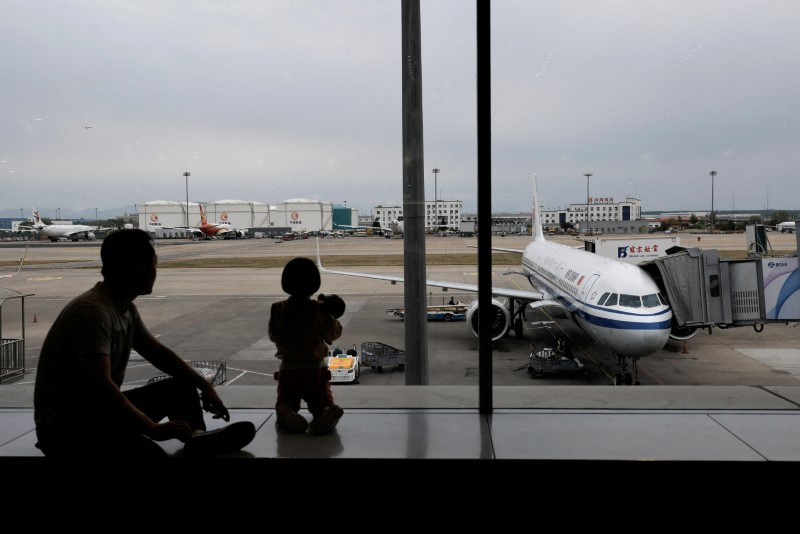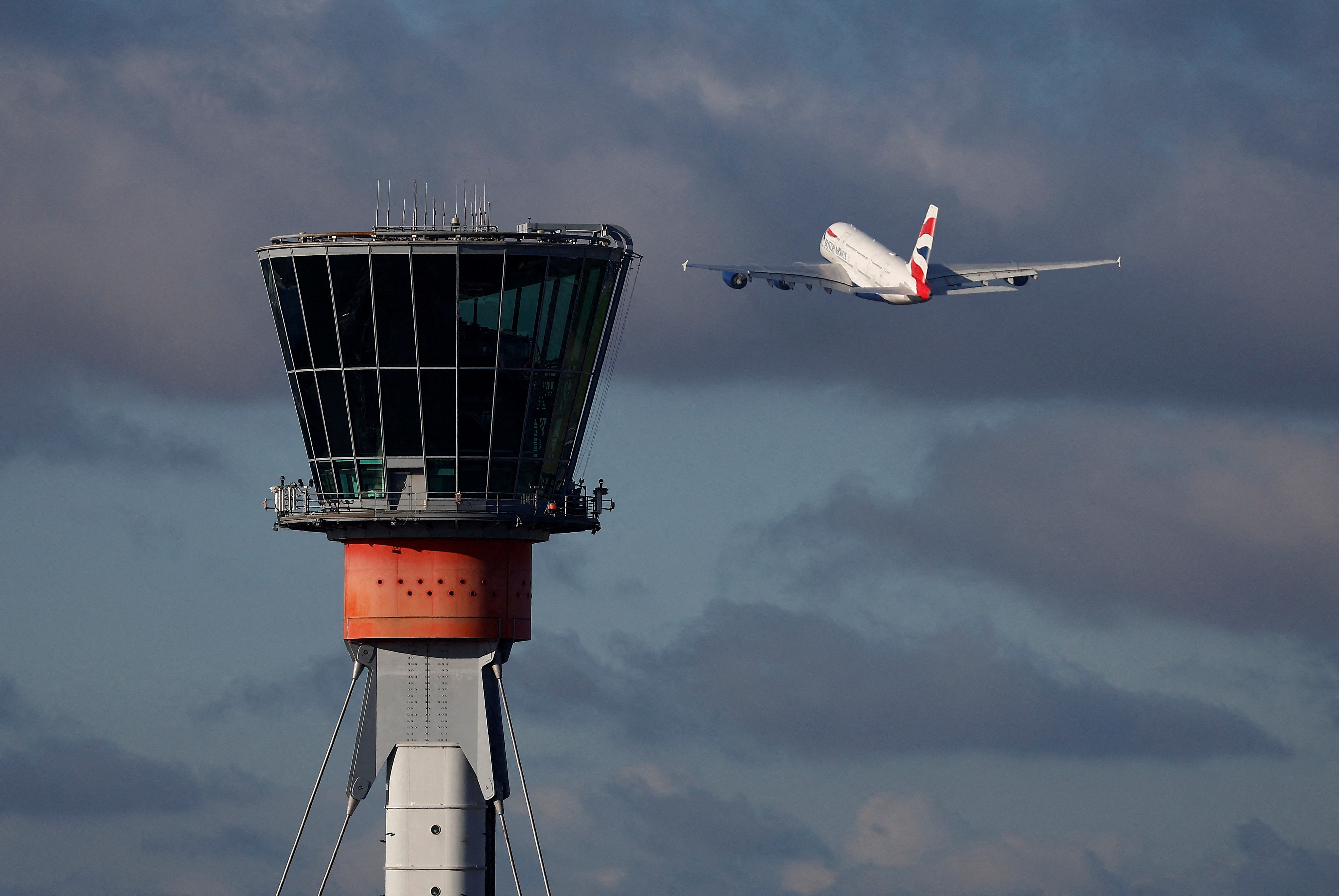By Lisa Barrington
SEOUL (Reuters) - Chinese airlines are gaining market share on international routes, industry data shows, as foreign rivals are deterred by weak China travel demand and rising costs and extended flight times because of the need to avoid Russian airspace.
Foreign airlines, led by Western carriers such as British Airways and Australia's Qantas Airways, are pulling services or opting not to restart flights to China after the pandemic, whereas Chinese airlines are expanding overseas operations.
The proportion of international flights to and from China operated by the country's carriers is higher than before COVID-19 grounded much of global aviation and continues to rise.
British Airways said on Thursday it would halt flights from London to Beijing for a year from late October for commercial reasons and last month suspended one of its twice daily London-Hong Kong flights for the same period.
Since the outbreak of war in Ukraine in 2022, Chinese carriers have continued to take shorter northern routes to Europe and North America over Russia's vast airspace.
In contrast, airlines in Europe, the U.S. and other countries have been banned from Russian airspace by Moscow or their own governments or choose not to overfly out of safety concerns.
That has expanded the cost advantage held by Chinese airlines and allowed them to take a larger share in the international market at a time when fierce competition on domestic routes has put pressure on ticket prices and profitability.
"Typically Chinese carriers have anything up to 30% lower costs than their international rivals," said John Grant, senior analyst at travel data firm OAG. "Chinese airlines are desperate for hard currencies and have embarked on a wide-ranging expansion."
British Airways' four days a week Beijing-London flight takes around 2-1/2 hours longer than China Southern's daily flight on the same route it launched last year, according to flight tracker Flightradar24.
British Airways will continue daily London-Shanghai flights and in May relaunched a codeshare with China Southern.
Virgin Atlantic said last month it would drop its London-Shanghai service indefinitely from the end of October due to longer flight times.
British Airways and Virgin Atlantic will be able to use the valuable London Heathrow takeoff and landing slots for other routes that may be more profitable.
Qantas cited half-empty planes and low demand for China travel when it suspended Sydney-Shanghai flights in July, while Asian carrier Royal Brunei Airlines pointed to "market conditions" as the reason for suspending twice-weekly Beijing flights from October.
FOREIGN CARRIERS RETREAT
Chinese airlines including China Southern, China Eastern and Air China (OTC:AIRYY) in July operated 90% of the number of international flights they were operating in July 2019, according to Cirium schedule data analysed by Reuters.
Foreign carriers operated only 60% of pre-pandemic flights, indicating a retreat.
For example, the only non-stop flights between Mexico and China are from Chinese airlines after Aeromexico did not resume links after the pandemic. Aeromexico did not respond to a request for comment.
Lufthansa CEO Carsten Spohr said last week the group's weakness in Asia stemmed not from a lack of economic opportunities, but from "overcapacity provided by Chinese carriers".
But in the Middle East, where China has been building ties, Dubai's Emirates has fully restored capacity to China, Kuwait Airways has increased frequencies and Bahrain's Gulf Air in May started flights for the first time to two Chinese cities.
China's international traffic has been growing since pandemic-related restrictions were lifted at the start of 2023, but it has recovered more slowly than in other countries due to a faltering economy and a turn toward domestic travel.
In July, there were 23% fewer flights out of China than in the same month in 2019, Cirium data shows.
POLITICAL ISSUES
Some flights to and from China have been held up by political issues. Passenger flights between India and China did not resume at all after the pandemic due to a border dispute.
Flights between China and the United States are at about a fifth of 2019 levels after a bilateral air services agreement was suspended in 2020.
Mutual flight authorisations have gradually increased, but U.S. airlines are running only 35 return flights a week of the 50 permitted, Cirium data shows, whereas Chinese carriers have ramped up to 49 a week.
United Airlines said last month it had reallocated capacity to other parts of the Asia-Pacific region due to "dramatically" lower travel demand for China.

Major U.S. airlines and aviation unions in April asked the U.S. government not to approve any more flights by Chinese carriers in a letter citing Beijing's "anti-competitive policies" and the Russia overflight disadvantage.
"If the growth of the Chinese aviation market is allowed to continue unchecked ... flights will continue to be relinquished to Chinese carriers," the letter said.
